The seminar on "Building a China-ASEAN Blue Economy Partnership" was held in Bangkok, Thailand
On the afternoon of August 27th, 2024, the seminar on "Building a China-ASEAN Blue Economy Partnership", jointly organized by China Institute for Reform and Development (CIRD), Hainan Institute for Free Trade Port Studies (HIFTPS), and Institute of East Asian Studies, Thammasat University, Thailand, was held in Bangkok, Thailand. More than 40 representatives of scholars and experts from think tanks, associations, and organizations of China, Thailand, Indonesia, Malaysia, Cambodia, Laos, and the Philippines, etc., as well as media representatives from People's Daily, Xinhua News Agency, China News Service, and China Daily attended the seminar.
Professor Chi Fulin, President of China Institute for Reform and Development (CIRD) and President of Hainan Institute for Free Trade Port Studies (HIFTPS), delivered a speech titled "Promoting the Process of China-ASEAN Blue Economy Cooperation". Professor Chi believes that in the face of the new situation of comprehensive strategic cooperation between China and ASEAN, building a China-ASEAN blue economy partnership is conducive to solving the prominent issues in the comprehensive strategic cooperation between China and ASEAN, forming a new pattern in which marine cooperation leads the marine governance, and is conducive to releasing the huge potential contained in the marine economy and forming an important support for sustainable development.
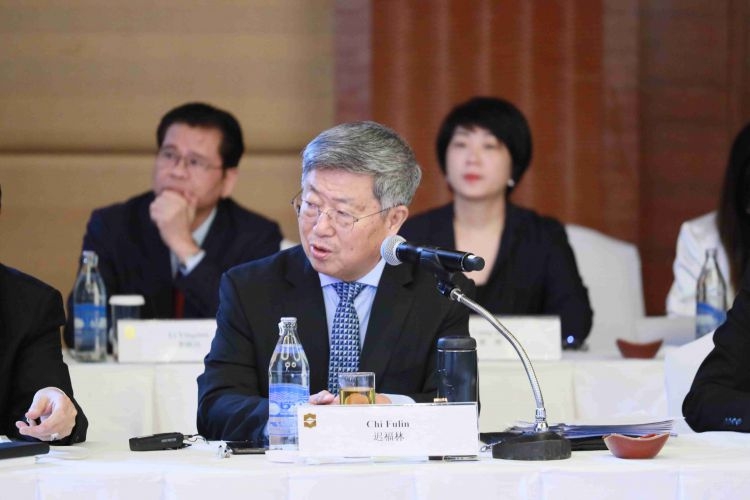
Professor Chi Fulin proposed that cooperatively building the marine ranch, cooperatively developing the marine tourism, cooperatively promoting the construction of the marine transportation infrastructure, and cooperatively developing the marine renewable energy should become the common tasks of building a blue economy partnership between China and ASEAN. At the same time, seize important opportunities such as the RCEP, and take the lead in achieving "early harvests" in such aspects as building the fishery industry and supply chain between China and ASEAN, promoting island tourism cooperation, and promoting port operator cooperation, and building a pilot zone for China-ASEAN blue economy cooperation.
Dr. Chaiwat Meesanthan, Director of the Institute of East Asian Studies, Thammasat University, Thailand, delivered an opening speech. After the speech, the participants exchanged views on the topics of "Deepening Cooperation in Marine Ranching and Constructing Fisheries Industrial and supply chain", "Enhancing Cruise Tourism Cooperation and Building a Regional Marine Tourism Market", "Strengthening Port Facilities Cooperation and Marine Infrastructure Connectivity", "Establishing a Cooperation Mechanism for Marine Environmental Protection and Developing Renewable Energy Together", and "Enhancing Capability-Training for Blue Economy Development and Deepening Cultural Exchanges".
The seminar was divided into two stages and was presided over by Mr. Guo Da, Vice President of Hainan Institute for Free Trade Port Studies (HIFTPS), and Dr. Li Chun, Director of CIRD-GRANDALL Center of FTP Law Studies.
Tan Sri Ong Tee Keat, President of Belt and Road Initiative Caucus for Asia Pacific (BRICAP), Malaysia, believes that the levels of blue economy development in China and ASEAN are different, and it is necessary to strengthen multi-level exchanges and cooperation. To a large extent, blue economy cooperation between China and ASEAN is limited to traditional fields such as aquatic product trade. In the future, China can take more proactive measures to achieve the vision and goals of the China-ASEAN Strategic Partnership 2030.
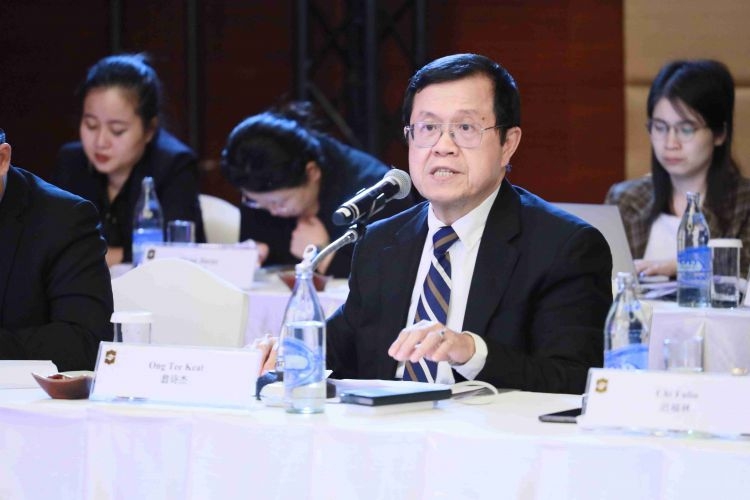
Mr. Preeda Youngsuksathaporn, Director General of the Fish Marketing Organization of the Ministry of Agriculture and Cooperatives, Thailand, believes that the development of Thailand's aquatic product trade has broad prospects, but still needs to continuously pay attention to global market dynamics and adjust business strategies in a timely manner to maintain global competitiveness in aquatic product trade. With the tightening of ecological and environmental constraints, there is great cooperation potential between China and Thailand in the fields of fishery breeding and processing, and this will promote transformation and development including ports.
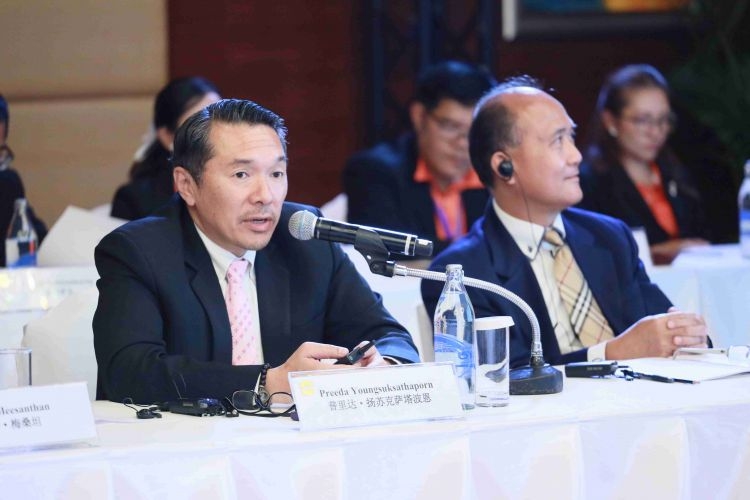
Dr. Yose Damuri, Director of Centre for Strategic and International Studies (CSIS), Indonesia, believes that the level of maritime connectivity among ASEAN countries is still relatively low, and port service capabilities are very limited. He suggests that, first, promote the transformation and upgrading of port infrastructure; second, promote the digital transformation of ports; third, set up green transportation thresholds and encourage the development of low-emission ships, etc.; fourth, encourage offshore transportation to replace road and air transportation to reduce logistics costs; fifth, continuously strengthen capacity building for personnel in ports and ships.
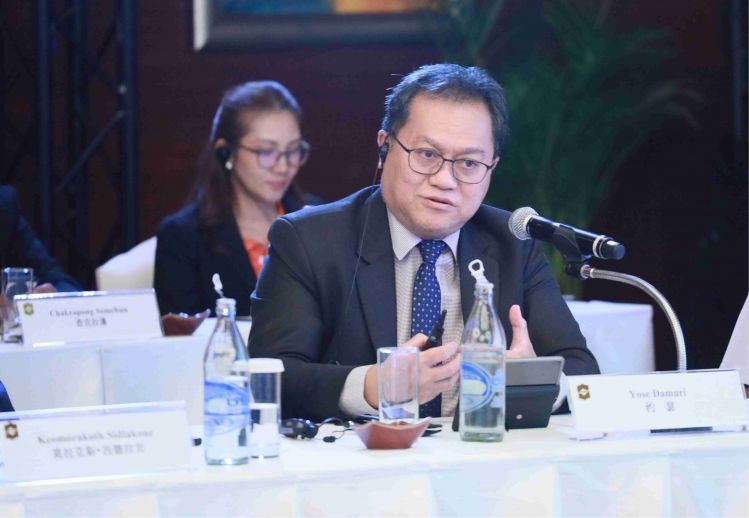
Dr. Li Chun, Director of CIRD-GRANDALL Center of FTP Law Studies, believes that ASEAN fisheries are in a critical stage of transformation and development from being fishing-centered to being aquaculture-centered. China-ASEAN fishery cooperation not only faces great potential, but also faces problems such as the lack of standards, low level of data sharing, and insufficient level of legalization. In this context, it is recommended to fully utilize the foundation of China-ASEAN fishery cooperation, promote cross-industry and cross-departmental fishery cooperation, and jointly develop marine resources by establishing "enclaves" and "flying seas".
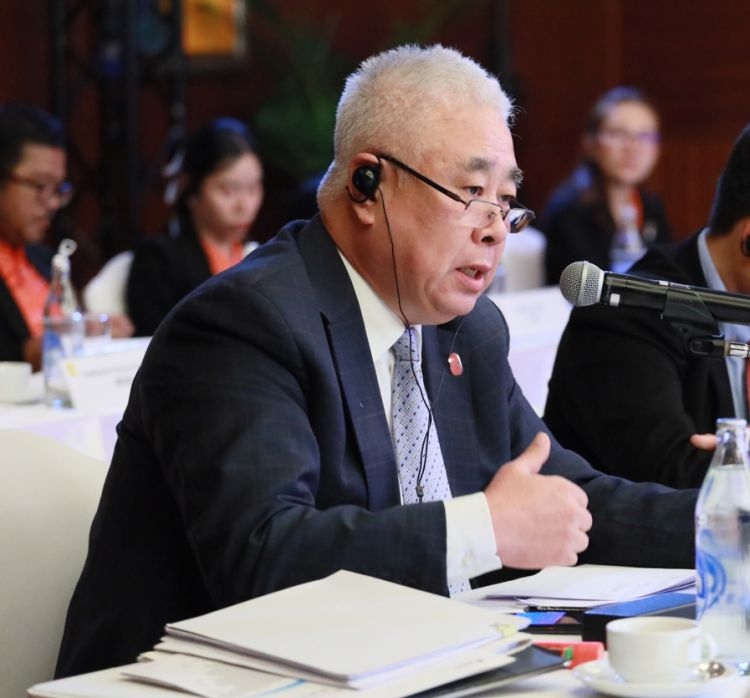
Mr. Kavi Chongkittavorn, senior journalist on regional affairs from Thailand, proposed that Thailand regards the blue economy as an important part of achieving sustainable economic growth and attaches great importance to blue economy cooperation with China. However, at present, Thailand has not yet formed clear conceptual nodes, policy frameworks and details regarding the matter. In the future, it is very important for China and Thailand to effectively integrate resources, properly handle differences, and make full use of the RCEP, the "Belt and Road Initiative" and other cooperation frameworks to form an action plan for a blue economy partnership.
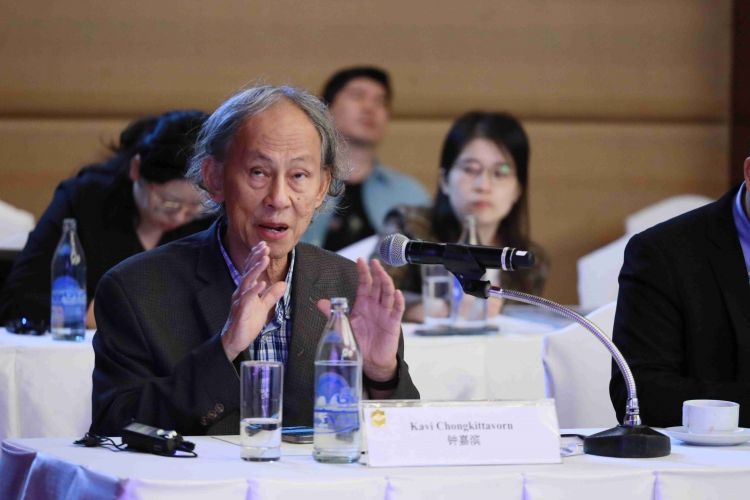
Dr. Keomorakoth Sidlakone, Assistant to Ministers, Ministry of Industry and Commerce, Laos PDR, pointed out that China and ASEAN face various contradictions and challenges in marine ranches cooperation, but can use RCEP rules of origin to promote the construction of China-ASEAN fishery industry and supply chains. He suggested that, deepen cruise tourism cooperation and building a large regional marine tourism market; strengthen port facility cooperation and inter-connectivity of marine infrastructure; establish a cooperation mechanism for marine environmental protection and cooperative development of renewable energy; strengthen the training of blue economy development capabilities and deepen cultural exchanges.
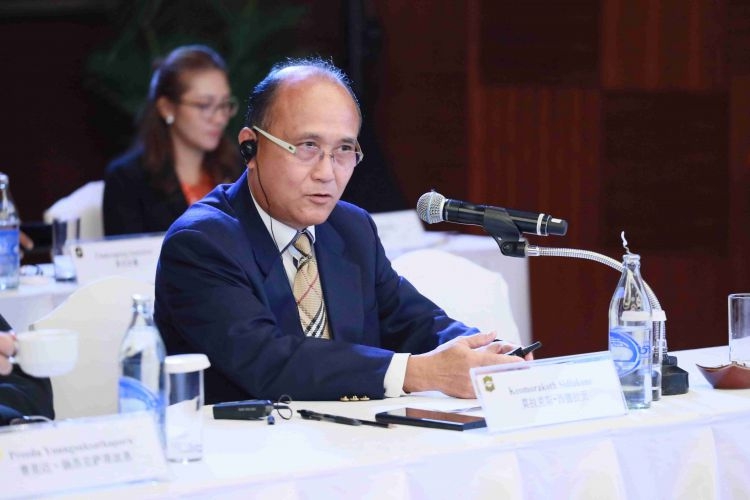
Dr. Rommel Banlaoi, President of the Philippine Institute for International Security Studies, believes that cooperation is an important step in resolving the disputes of South China Sea. China and the Philippines can ease tensions and promote cooperation through peaceful means. One option is to carry out joint fishery management cooperation, such as jointly building marine protected areas, fishery agreements and aquaculture. This requires relevant countries to strengthen the construction of confidence-building measures and actively carry out consultations and negotiations to reach consensus.
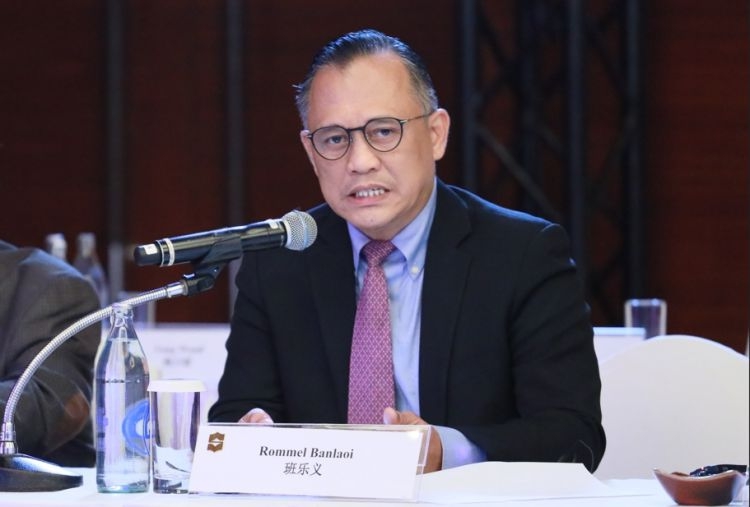
Dr. Chaiwat Meesanthan, Director of the Institute of East Asian Studies, Thammasat University, Thailand, proposed that ASEAN can focus on several key points in deepening its blue economy partnership with China. First, focus on formulating mitigation and adaptation strategies; second, promote capacity building for sustainable fisheries through technical assistance and training programs; third, cooperate on green port and aquatic product trade; fourth, build marine communities and support community-based blue economy cooperation; fifth, promote general education and popularize blue economy knowledge; sixth, increase investment in the blue economy and focus on innovation and sustainable development; seventh, strengthen technology transfer and sharing.
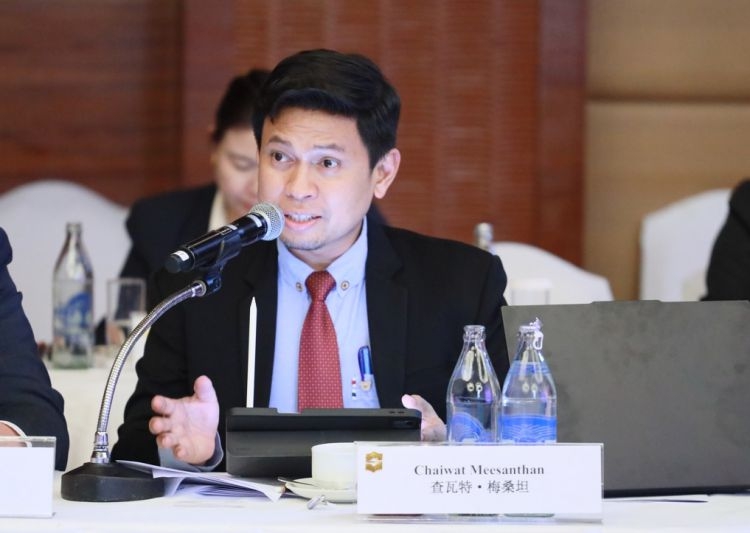
Mr. Guo Da, Vice President of Hainan Institute for Free Trade Port Studies (HIFTPS), pointed out that the Hainan Free Trade Port is conditionally able to take the lead in making breakthroughs in fisheries, cruise tourism, marine ecological environment protection and sustainable resource development, port infrastructure connectivity and capacity training, and achieve "early harvests" in blue economy cooperation.
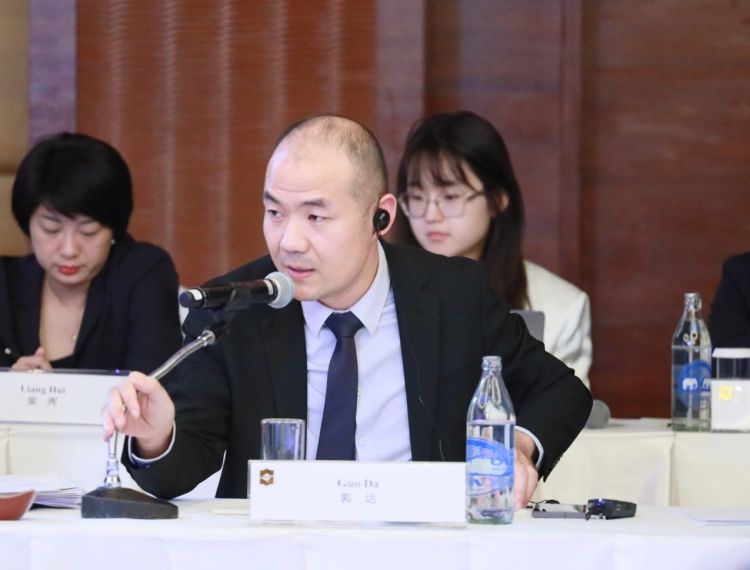
After the keynote speeches, Mr. Pak Rosjanasumapong, Managing Director of P.T. Food Processing Co., Ltd. in Thailand, and Mr. Chayapat Wareenil, Researcher at the Department of Economics, Chiang Mai University, also made discussion speeches.
Ms. Yang Rui, Executive President of China Institute for Reform and Development (CIRD) and President of RCEP Research Institute, concluded the seminar on behalf of the organizers. She proposed that the seminar will provide intellectual support for promoting the blue economy partnership between China and ASEAN. In the future, it is hoped that relying on the RCEP Think Tank Network (RCEPTTN), further cooperation research and exchanges on the blue economy partnership between China and ASEAN will be carried out to make greater contributions to deepening the China-ASEAN blue economy partnership. CIRD will also continue to cooperate with relevant institutions to carry out regional blue economy youth dialogues and capacity building for blue economy development.
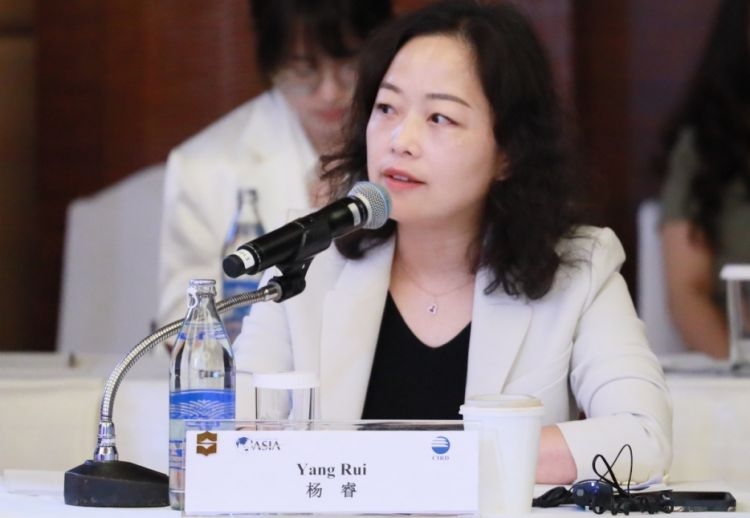
It is reported that in recent years, with the support of multiple parties, CIRD has carried out several project activities such as blue economy seminars, training, and academic exchanges, and has generated a wide impact on those activities. In the next step, CIRD will strive to build an intellectual support platform, an international exchange platform, a capacity training platform, and an enterprise investment cooperation promotion platform for China-ASEAN blue economy cooperation, so as to provide intellectual support for promoting the process of China-ASEAN blue economy partnership.
 中改院
中改院
 Scan official wechat
Scan official wechat Scan official wechat
Scan official wechat